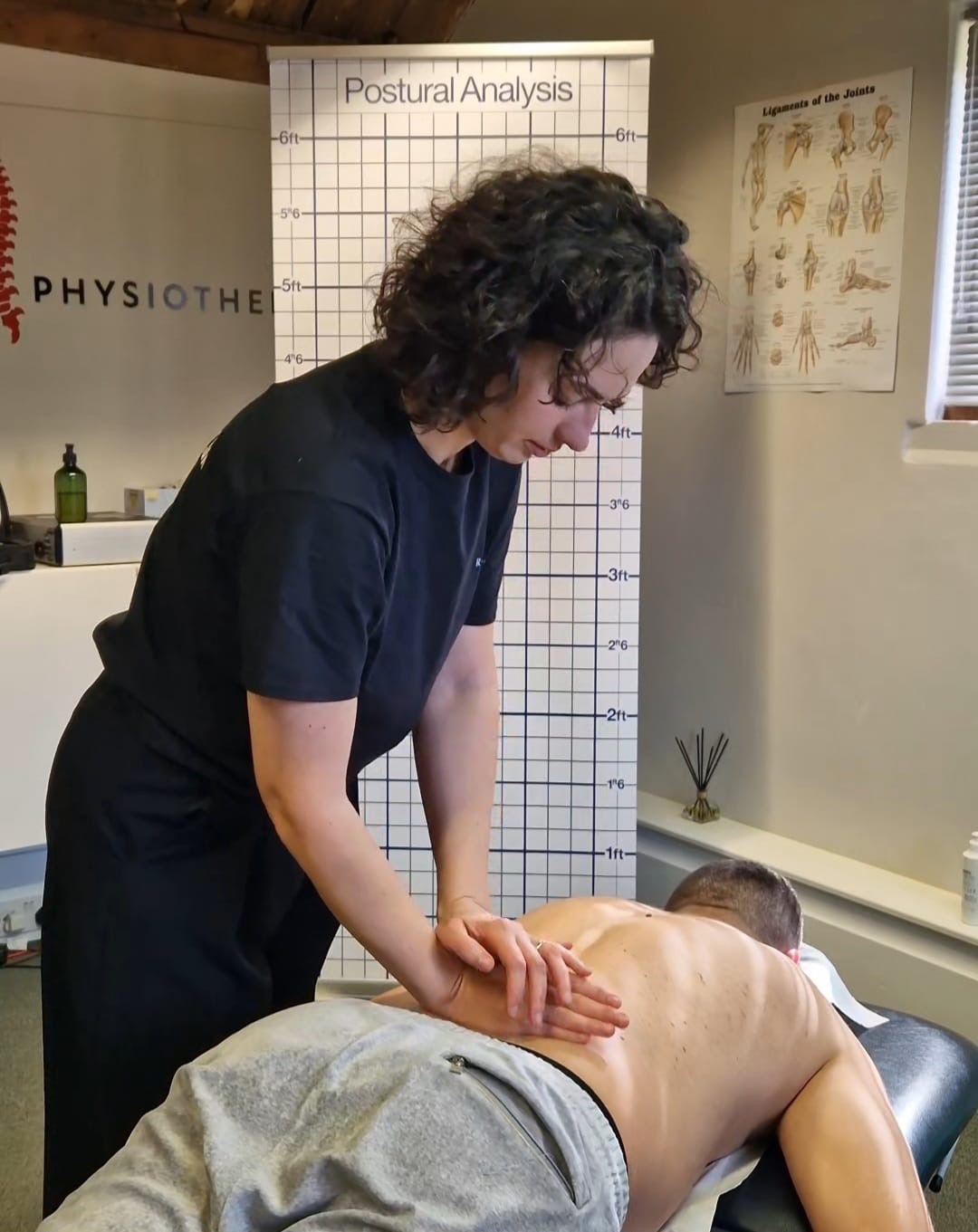
A herniated disc, also known as a slipped or ruptured disc, occurs when one of the intervertebral discs that cushion the spine ruptures or bulges out, potentially pressing on surrounding nerves. Common causes include age-related wear and tear, sudden injuries, and degenerative diseases. Symptoms of a herniated disc often include pain, numbness, and weakness in the arms or legs, depending on the location of the herniation. t is crucial for individuals suffering from such symptoms to seek professional care to facilitate recovery effectively. Among various treatment options, physiotherapy is a prominent non-surgical method known for its benefits in managing and alleviating the discomfort associated with herniated discs
How Can Physiotherapy Help?
Physiotherapy can play a significant role in the relief of pain and recovery from a herniated disc. By employing a range of techniques, physiotherapy aims not only at alleviating symptoms but also at addressing the underlying issues. One primary focus of physiotherapy is reducing inflammation and nerve compression, which directly impacts pain levels. Physiotherapists utilize manual therapy techniques, stretching, and strengthening exercises designed to relieve pressure on the affected nerve roots, ultimately promoting recovery.
Another critical aspect of physiotherapy is strengthening the surrounding muscles. As stronger muscles support the spine, they can protect against future injuries or recurrences. Additionally, physiotherapy can help improve posture and develop better movement strategies during daily activities, further protecting the spine and preventing exacerbation of symptoms.
Physiotherapy sessions may include various techniques:
Manual Therapy: This involves soft tissue massage and joint mobilisation aimed at reducing tightness and pain.
Therapeutic Exercises: These exercises strengthen and improve flexibility across muscle groups surrounding the spine
Postural Correction: Education on optimal posture and ergonomic adjustments in daily activities can help reduce strain on the back
Electrotherapy:Techniques like Transcutaneous Electrical Nerve Stimulation (TENS) or ultrasound may be used to further aid in pain relief if necessary
Moreover, physiotherapists will likely provide education on activity modifications and self-care strategies to empower patients in their recovery journey.
Recovery Timeline & Expected Outcomes
The timeframe for recovery from a herniated disc with physiotherapy varies by individual but generally ranges from a few weeks to several months. Factors influencing this timeline include the severity of the herniation, the adherence to the therapy regimen, and overall lifestyle choices. Patients often begin to see improvements within a few sessions, but full recovery can take longer. It’s essential to set realistic expectations: while physiotherapy can offer significant relief, total recovery might not always be achievable within a specific timespan. Instead, the focus should be on managing pain and improving function.
When to Consider Other Treatment Options
Despite the efficacy of physiotherapy, there are circumstances when it may not suffice. If significant improvements aren’t observed after a reasonable period or in instances of severe pain and neurological deficits, medical interventions such as injections or surgery may be necessary. Consulting a healthcare provider to discuss these options is essential, especially if symptoms persist or worsen.
Tips for Managing a Herniated Disc at Home
Patients can actively manage their condition at home by engaging in appropriate exercises and making ergonomic adjustments to their environment: –
Best Exercises: Gentle stretching and strengthening exercises under the guidance of a physiotherapist are often beneficial, while high-impact or twisting movements should generally be avoided until the condition improves
Staying Active: Keeping active is crucial, even amid pain, but activities should be monitored to avoid exacerbating symptoms
Ergonomic Changes: Modifying workstations, ensuring good posture, and incorporating regular movement throughout the day can help support healing
Take home message-
Physiotherapy serves as a valuable tool in managing a herniated disc, facilitating pain relief and recovery through targeted treatments and education. It is essential, however, for individuals to seek professional guidance to tailor interventions to their unique needs. Taking proactive steps toward management and recovery can significantly improve one’s quality of life.
If your pain does not seem to improve in a week or two’s time, it’s important to get it clinically checked!
At RED Physiotherapy, we have knowledgable and skilled therapist who can help you fix this issue.
To book your appointment, call on the number below-
📞 Call 01604 385343 (Northampton) or 01908 713973 (Milton Keynes) or Book Online today!
